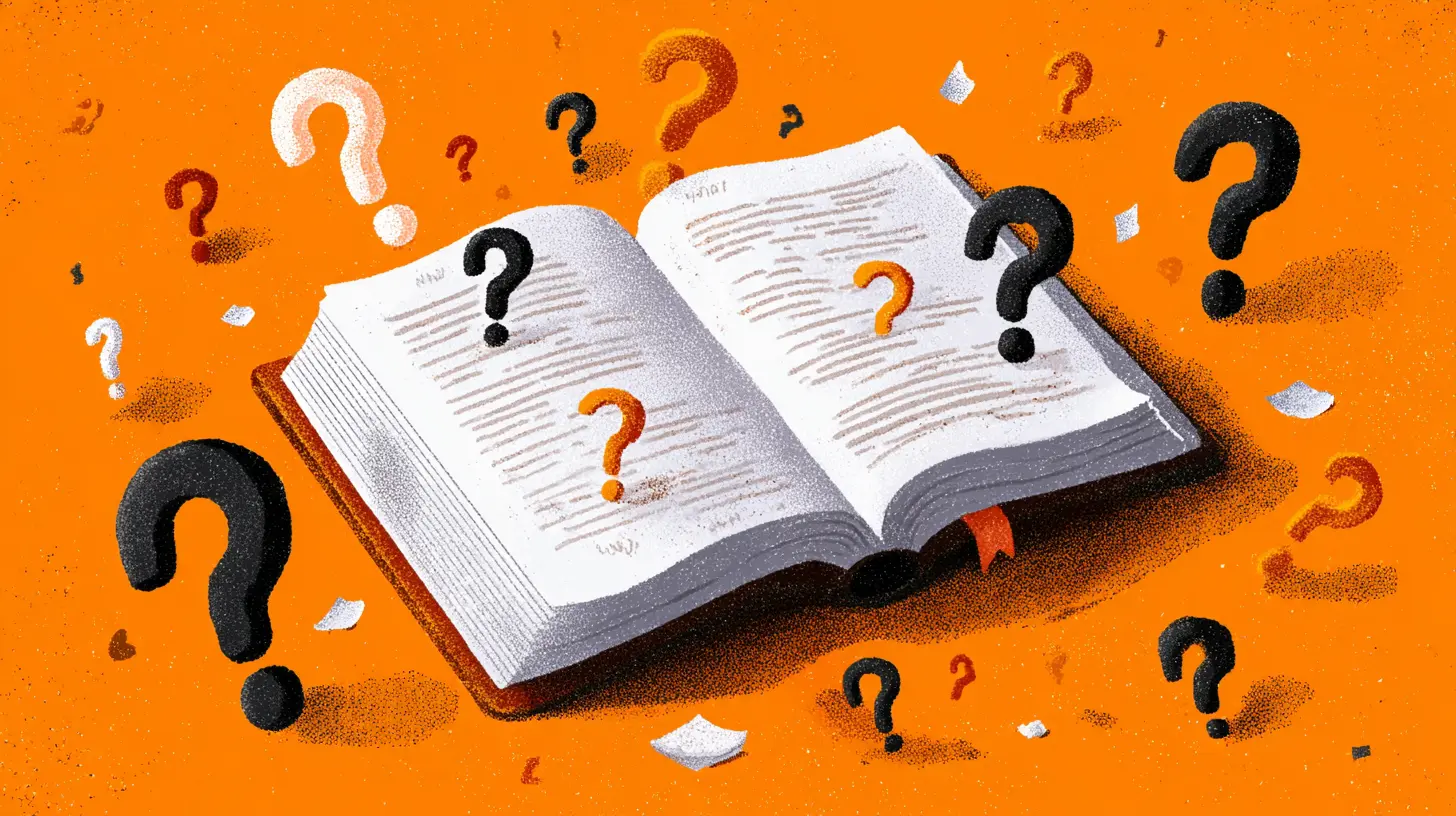Vídeo | Is Grammar Important for Speaking English?
Você já se perguntou se a gramática realmente importa para falar inglês? Esse é um tema que divide opiniões: enquanto alguns acreditam que o mais importante é se comunicar, mesmo com erros, outros defendem que uma boa gramática é essencial para clareza e profissionalismo. Mas será que dá para equilibrar esses dois pontos de vista? Descubra como pequenos ajustes na gramática podem transformar sua confiança ao falar, sem deixar o medo de errar bloquear o seu progresso. Afinal, comunicação vem antes da perfeição, e aprender é um passo de cada vez!
| Audio | |
|---|---|
Normal | Slow |
| English Transcript | Tradução |
| Many English learners often ask the same question: Is grammar really important for speaking English? | Muitos estudantes de inglês frequentemente fazem a mesma pergunta: a gramática é realmente importante para falar inglês? |
| This is a topic where people have different opinions. | Este é um tópico sobre o qual as pessoas têm opiniões diferentes. |
| Some people say that grammar is not necessary when speaking and others say that grammar is very important. | Algumas pessoas dizem que a gramática não é necessária ao falar, enquanto outras afirmam que ela é muito importante. |
| Let's understand both points of view with real life examples so we can find a balanced answer. | Vamos entender os dois pontos de vista com exemplos da vida real para encontrarmos uma resposta equilibrada. |
| But before we understand their opinions, what is your opinion about grammar? | Mas antes de entendermos essas opiniões, qual é a sua opinião sobre gramática? |
| Is it important or not? | Ela é importante ou não? |
| Write your view in the comment section below. | Escreva sua visão na seção de comentários abaixo. |
| Now, let's look at their opinions. | Agora, vamos analisar as opiniões. |
| First, let's talk about the people who say grammar is not important. | Primeiro, vamos falar sobre as pessoas que dizem que a gramática não é importante. |
| These people believe that the main goal of speaking is to communicate. | Essas pessoas acreditam que o objetivo principal ao falar é comunicar. |
| If you can express your thoughts and other people understand you, then grammar mistakes are not a big problem. | Se você consegue expressar seus pensamentos e as outras pessoas entendem o que você quer dizer, então erros gramaticais não são um grande problema. |
| For example, imagine a tourist visiting a new country. | Por exemplo, imagine um turista visitando um novo país. |
| He goes to a restaurant and says, "Me want food. | Ele vai a um restaurante e diz: "Eu querer comida". |
| " Now, this sentence is not grammatically correct, but the waiter understands that the person is hungry and wants to eat. | Agora, essa frase não está gramaticalmente correta, mas o garçom entende que a pessoa está com fome e quer comer. |
| The goal of communication is achieved even though the grammar was not perfect. | O objetivo da comunicação foi alcançado, mesmo que a gramática não tenha sido perfeita. |
| This shows that in real life situations, grammar mistakes do not always stop communication. | Isso mostra que, em situações do dia a dia, erros gramaticais nem sempre impedem a comunicação. |
| Many of these people believe that focusing too much on grammar can actually stop learners from speaking. | Muitas dessas pessoas acreditam que focar demais na gramática pode, na verdade, impedir os alunos de falar. |
| They worry about making mistakes, so they stay silent. | Eles têm medo de cometer erros, então preferem ficar em silêncio. |
| But when learners are not afraid to make small grammar mistakes, they speak more freely and become more confident. | Porém, quando os estudantes não têm medo de cometer pequenos erros gramaticais, eles falam com mais liberdade e se tornam mais confiantes. |
| Just think about how children learn to speak. | Pense em como as crianças aprendem a falar. |
| They do not start with grammar books. | Elas não começam com livros de gramática. |
| They listen, copy, and speak. | Elas escutam, imitam e falam. |
| They make many mistakes, but they improve over time. | Cometem muitos erros, mas melhoram com o tempo. |
| So, this group of people believes that it's okay to speak with mistakes at first. | Portanto, esse grupo de pessoas acredita que tudo bem falar com erros no início. |
| Fluency is more important than perfection. | A fluência é mais importante do que a perfeição. |
| On the other hand, there are people who believe that grammar is very important for speaking. | Por outro lado, há pessoas que acreditam que a gramática é muito importante para falar. |
| They say that if your grammar is weak, your message might be confusing or unclear. | Eles dizem que, se sua gramática for fraca, sua mensagem pode ser confusa ou pouco clara. |
| For example, if someone says, "I go to school yesterday," the listener might understand what you mean, but the sentence is incorrect. | Por exemplo, se alguém diz: "Eu ir à escola ontem", o ouvinte pode até entender o que você quis dizer, mas a frase está incorreta. |
| The correct sentence is, "I went to school yesterday. | A frase correta seria: "Eu fui à escola ontem." |
| " The wrong grammar can make you sound less professional, especially in formal situations. | A gramática errada pode fazer com que você pareça menos profissional, especialmente em situações formais. |
| In a job interview, for example, speaking with correct grammar shows that you are educated and well prepared. | Em uma entrevista de emprego, por exemplo, falar com a gramática correta mostra que você é educado e está bem preparado. |
| If someone says he go office every day instead of he goes to the office every day, it might sound careless or unnatural. | Se alguém diz "Ele ir ao escritório todos os dias" em vez de "Ele vai ao escritório todos os dias", pode soar descuidado ou pouco natural. |
| This group also believes that good grammar helps you say more complicated ideas. | Esse grupo também acredita que uma boa gramática ajuda você a expressar ideias mais complexas. |
| For example, if you want to talk about possibilities, conditions, or polite requests, grammar is very helpful. | Por exemplo, se você quiser falar sobre possibilidades, condições ou fazer pedidos educados, a gramática é muito útil. |
| Saying, "I would like a cup of tea," is more polite than I want tea. | Dizer "Eu gostaria de uma xícara de chá" é mais educado do que "Eu quero chá". |
| If you understand grammar, you can speak more clearly, politely, and confidently in different situations. | Se você entende de gramática, pode falar de forma mais clara, educada e confiante em diferentes situações. |
| That is why some learners focus on grammar from the beginning. | Por isso, alguns estudantes focam na gramática desde o início. |
| So, who is right? | Então, quem está certo? |
| The truth is both sides have a point. | A verdade é que ambos os lados têm razão. |
| If you are just starting to speak English, don't wait until your grammar is perfect. | Se você está começando a falar inglês, não espere até que sua gramática esteja perfeita. |
| Start speaking now. | Comece a falar agora. |
| Use the grammar you know and keep practicing. | Use a gramática que você já conhece e continue praticando. |
| It's okay to make mistakes. | Está tudo bem cometer erros. |
| Everyone does. | Todos cometem. |
| But at the same time, don't completely ignore grammar. | Mas, ao mesmo tempo, não ignore completamente a gramática. |
| Slowly, you should improve it so that your speaking becomes more accurate and natural. | Aos poucos, você deve melhorá-la para que sua fala se torne mais precisa e natural. |
| In casual conversations, people will forgive small grammar mistakes. | Em conversas casuais, as pessoas perdoarão pequenos erros gramaticais. |
| But in school, work or official situations, good grammar will help you sound more professional. | Mas na escola, no trabalho ou em situações formais, uma boa gramática ajudará você a soar mais profissional. |
| In the end, grammar is not something to be afraid of. | No final das contas, a gramática não é algo que você deve temer. |
| It is a tool to help you speak better, not a rule to stop you from speaking. | Ela é uma ferramenta para ajudá-lo a falar melhor, não uma regra para impedi-lo de falar. |
| Focus on communication first. | Foque primeiro na comunicação. |
| Then, as you grow, improve your grammar step by step. | Depois, à medida que você evoluir, melhore sua gramática passo a passo. |
| Speak with confidence. | Fale com confiança. |
| And remember, you don't have to be perfect to be understood. | E lembre-se: você não precisa ser perfeito para ser compreendido. |
| Keep learning, keep speaking and grammar will become your friend, not your fear. | Continue aprendendo, continue falando, e a gramática se tornará sua amiga, e não o seu medo. |
Contagem de palavras
A tabela abaixo exibe as palavras encontradas neste vídeo, bem como o número de vezes em que aparecem.
Veja também: Para que serve esta tabela?
| Freq. | Palavra | Freq. | Palavra | Freq. | Palavra |
|---|---|---|---|---|---|
| 27 | grammar | 26 | is | 19 | the |
| 17 | you | 17 | to | 15 | not |
| 13 | that | 12 | and | 11 | a |
| 10 | your | 10 | speaking | 9 | people |
| 8 | they | 8 | speak | 8 | of |
| 8 | more | 8 | mistakes | 8 | in |
| 7 | if | 7 | but | 6 | it |
| 6 | important | 6 | for | 5 | with |
| 5 | understand | 5 | this | 5 | so |
| 5 | say | 5 | or | 5 | do |
| 5 | can | 5 | are | 5 | about |
| 4 | situations | 4 | on | 4 | make |
| 4 | learners | 4 | I | 4 | example |
| 4 | be | 3 | will | 3 | who |
| 3 | want | 3 | very | 3 | us |
| 3 | stop | 3 | sound | 3 | sentence |
| 3 | school | 3 | says | 3 | perfect |
| 3 | opinions | 3 | now | 3 | might |
| 3 | many | 3 | let | 3 | keep |
| 3 | improve | 3 | he | 3 | have |
| 3 | from | 3 | first | 3 | english |
| 3 | correct | 3 | communication | 3 | believe |
| 3 | at | 2 | yesterday | 2 | when |
| 2 | what | 2 | we | 2 | view |
| 2 | time | 2 | these | 2 | then |
| 2 | their | 2 | than | 2 | tea |
| 2 | talk | 2 | step | 2 | start |
| 2 | someone | 2 | some | 2 | small |
| 2 | shows | 2 | same | 2 | real |
| 2 | professional | 2 | polite | 2 | other |
| 2 | okay | 2 | office | 2 | life |
| 2 | just | 2 | help | 2 | group |
| 2 | good | 2 | goes | 2 | goal |
| 2 | go | 2 | focus | 2 | every |
| 2 | different | 2 | day | 2 | both |
| 2 | believes | 2 | become | 2 | afraid |
| 1 | wrong | 1 | write | 1 | would |
| 1 | worry | 1 | work | 1 | why |
| 1 | where | 1 | went | 1 | well |
| 1 | weak | 1 | was | 1 | wants |
| 1 | waiter | 1 | wait | 1 | visiting |
| 1 | use | 1 | until | 1 | unnatural |
| 1 | understood | 1 | understands | 1 | unclear |
| 1 | truth | 1 | tourist | 1 | topic |
| 1 | tool | 1 | too | 1 | thoughts |
| 1 | though | 1 | think | 1 | there |
| 1 | stay | 1 | starting | 1 | something |
| 1 | slowly | 1 | silent | 1 | sides |
| 1 | should | 1 | section | 1 | saying |
| 1 | rule | 1 | right | 1 | restaurant |
| 1 | requests | 1 | remember | 1 | really |
| 1 | question | 1 | problem | 1 | prepared |
| 1 | practicing | 1 | possibilities | 1 | politely |
| 1 | points | 1 | point | 1 | person |
| 1 | perfection | 1 | over | 1 | others |
| 1 | opinion | 1 | often | 1 | official |
| 1 | new | 1 | necessary | 1 | natural |
| 1 | much | 1 | message | 1 | mean |
| 1 | me | 1 | making | 1 | main |
| 1 | look | 1 | listener | 1 | listen |
| 1 | like | 1 | less | 1 | learning |
| 1 | learn | 1 | know | 1 | job |
| 1 | interview | 1 | instead | 1 | incorrect |
| 1 | imagine | 1 | ignore | 1 | ideas |
| 1 | hungry | 1 | how | 1 | helps |
| 1 | helpful | 1 | hand | 1 | grow |
| 1 | grammatically | 1 | friend | 1 | freely |
| 1 | formal | 1 | forgive | 1 | food |
| 1 | focusing | 1 | fluency | 1 | find |
| 1 | fear | 1 | express | 1 | examples |
| 1 | everyone | 1 | even | 1 | especially |
| 1 | end | 1 | educated | 1 | eat |
| 1 | does | 1 | cup | 1 | country |
| 1 | copy | 1 | conversations | 1 | confusing |
| 1 | confidently | 1 | confident | 1 | confidence |
| 1 | conditions | 1 | complicated | 1 | completely |
| 1 | communicate | 1 | comment | 1 | clearly |
| 1 | children | 1 | casual | 1 | careless |
| 1 | by | 1 | books | 1 | big |
| 1 | better | 1 | below | 1 | beginning |
| 1 | before | 1 | becomes | 1 | balanced |
| 1 | ask | 1 | as | 1 | answer |
| 1 | always | 1 | also | 1 | actually |
| 1 | achieved | 1 | accurate |









